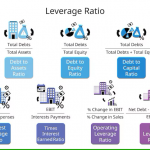A wealth manager is a financial advisor that provides financial planning, investment and portfolio management as well as other services to high-net-worth individuals.
Retirement planning, estate planning, tax strategies, insurance, and cash flow management are just some of the areas in which a wealth manager can aid their clients.
Due to typically reserving service for high net worth individuals, some wealth management firms have a minimum investment asset requirements, reflecting wealth management’s status as a “high-end” service.
Many of the people who require wealth management services benefit from consolidating all of their financial assistance needs with a single firm.
In this article, we will discuss the types of services that can be expected from wealth managers, what wealth management consists of, and if you should seek out such services.
What is a wealth manager?
Essentially, a wealth manager is an expert in managing money and helping people use it wisely.
A wealth manager is similar to a financial advisor, with more specialized expertise such as helping clients build long-term wealth and income, or managing their current accounts and investment portfolios.
Some can even help you create a personalized financial plan, advise you on how to grow your wealth, and make sure that your investments are working for you. To put it simply, a wealth manager is a financial advisor who advises clients on how to best allocate and grow their wealth.

What is an expat wealth manager?
Wealth management services cater to the financial planning and investment needs of individuals but the specific demands of expatriate clients introduce a distinct set of challenges and opportunities that traditional wealth managers might not fully address.
Normal wealth managers in traditional firms typically focus on clients residing within the same country, operating under a familiar legal and tax framework. Their strategies are designed with a domestic outlook, emphasizing local investment opportunities, tax regulations, and retirement planning norms. In contrast, expat wealth managers specialize in advising clients who live outside their home country or have financial interests across multiple countries.
These specialists understand the intricacies of international tax laws, currency exchange risks, and cross-border investment strategies. Expat wealth managers are adept at navigating the complexities of multiple jurisdictions, providing tailored advice that encompasses global tax optimization, estate planning, and insurance needs specific to the expatriate lifestyle. Their expertise is not just in managing wealth across different geographies but also in understanding the unique life circumstances and challenges faced by expats, making them indispensable for individuals looking to safeguard and grow their wealth on a global scale.
What is the difference between a wealth manager and a financial advisor?
At first glance, this might seem like an easy distinction: Advisors provide financial advice regarding investments, while managers manage them. But it is not that simple–and many people use these terms interchangeably when talking about their money managers because there is not a clear definition of what makes one type better than another for all clients’ needs or situations.
There is some overlap between the roles of financial planners and wealth managers; however, wealth managers tend to focus on large investments and other assets, whereas financial planners also account for day-to-day expenses, insurance needs, and more.
Both have their benefits. A wealth manager can better utilize resources to manage, preserve, and grow your wealth. Meanwhile, working with a financial advisor to create a strategy and then manage your assets can be a great step towards achieving your financial goals.
Financial advisors typically help their clients with both investment management and financial planning. There are, however, situations in which advisors will offer only one service and not the other.
Financial advisors can also refer to many different types of experts in the field, not just one.
One who has completed the requirements for public accounting and earned the Certified Public Accountant designation is an example. For another, insurance and retirement planning are areas of expertise for a chartered life underwriter (CLU). A certified financial planner (CFP) also advises clients on how to plan financially for the future.
Additionally, there are advisors whose primary clientele consists of retirees, expatriates, or business owners. Reviewing a consultant’s experience and training can help you determine their strengths.
Wealth managers, a specialization of financial advisors, are also part of that group. What sets them apart from other advisors is their clientele.
The wealthy are the primary target audience for wealth managers. They handle large sums of money on their clients’ behalf, as the name would imply.
In order to provide their clients with a comprehensive set of advisory services, wealth managers work closely with them. Services range from administration of investments to preparation of tax returns and budgets to preparation of financial and retirement plans to preparation of legal and charitable bequests and estate plans.
The services provided by a wealth manager are customized to meet the unique needs of each client.
Many separate organizations that offer financial advice also offer wealth management services. Private banks and other financial institutions are also resources for wealth management. Some of the most prominent are Fisher Investments, Merrill Lynch, Edward Jones, and J.P. Morgan.
It’s important to remember that some financial advisors charge clients on a fee basis. This means that they may receive compensation if they steer you toward a particular security.
Financial advisors who meet the legal definition of “fiduciary” are obligated to put your interests ahead of their own, even if that creates a conflict of interest. However, wealth managers almost never receive commission.
Wealth management companies often have many kinds of professionals working under them who specialize in different areas such as retirement planning or college savings accounts for children.
Some companies also offer full-service packages where they manage all aspects of your finances from investments to taxes to insurance policies if needed.
Financial planning is a part of wealth management. It is not enough to make money; you also need to know how to keep it.
Planning for the future and safeguarding one’s assets are central tenets of wealth management. It’s a way to build a safe financial future for yourself by considering your wants, needs, and the advice of experts who can help you make the right decisions and invest wisely.
If you find it difficult to plan for your financial future on your own, you can seek the assistance of professionals like financial advisors and wealth managers.
What are the benefits of having a wealth manager?
As you can see, wealth managers can help you to make the most of your money. They understand how to use your assets to grow your wealth and plan for the future.
They can provide financial planning and investment advice, which will help you create a strategy for saving and investing wisely so that you have adequate funds in place when needed.
They can also help with estate planning. This includes things like creating wills or trusts, setting up powers of attorney in case something happens to you unexpectedly, helping ensure proper asset distribution among beneficiaries.
Wealth managers may also provide guidance on optimizing tax sheltering opportunities available at any given time period during one’s lifetime.
A holistic approach is frequently used in the process of wealth management. A wide variety of services, such as investment advice, estate planning, accounting, retirement, and tax preparation, can be provided to meet a client’s complex needs.
A wealth management advisor may need to coordinate with the client’s other service providers (such as an attorney or accountant) and outside financial experts to achieve the best possible results.
Some financial advisors to the wealthy also provide banking services and counsel on things like philanthropic endeavors.
Wealth managers also keep you up to date with relevant financial news, such as upcoming initial public offerings, or big mergers and acquisitions you might want to invest in.
It is common practice for wealth management fees to be based on a predetermined percentage of a client’s total assets.
A wealth manager may also be called a private banker, but it is important to note that private bankers are not necessarily investment advisors or personal financial planners, but more customer service representatives for their particular banks.
A wealth manager will typically have an extensive background in finance or accounting, along with experience managing clients’ assets.
They will work closely with you to develop an investment strategy that meets your goals and objectives–and then keep tabs on your investments so that they stay on track with those goals as well as changes in the market or economy over time.
Wealth managers can help you create a personalized financial plan, which means they can guide you through the complex world of investment management and tax planning.
They are not just another broker or salesperson; they have extensive training in finance and investing, as well as certification from professional organizations like the CFA Institute (Chartered Financial Analyst) or the NAPFA (National Association of Personal Financial Advisors).

What kind of credentials should I be looking for in a wealth manager?
Some of the most prestigious credentials for financial advisors are the Certified Financial Planner, the Chartered Financial Planner, the Wealth Management Specialist, and the Personal Financial Specialist.
The Financial Industry Regulatory Authority (FINRA) is one source that provides information on the significance of various certifications.
It is highly recommended you research an organization’s policies on recertification, how complaints are handled, and how credentials are checked for validity, when searching for professionals to help you with your finances.
Certified Financial Planner
The Certified Financial Planner certification, established by the Certified Financial Planner Board of Standards, Inc., represents the pinnacle of expertise in the financial planning field.
Certified Financial Planners are required to meet strict educational, training, and ethical standards and are only awarded that title after passing the CFP Board’s initial exams.
The only way to keep their credentials up to date is to take part in annual continuing education courses, which these professionals are required to do.
The CFP Board of Standards is responsible for setting and enforcing the standards for financial planner certification in order to protect the public.
Earning the initial CFP credential requires meeting requirements in education, examination, experience, and ethics. It can take a potential CFP candidate up to one thousand hours to study for and pass the certification exam.
Financial planning certification typically calls for a bachelor’s degree and relevant coursework. A candidate’s adherence to the Rules of Conduct, which put the needs of clients first, and the Fitness Standards for Candidates and Registrants is required for passing the ethical section.
Wealth Management Specialist
The College for Financial Planning (CFP), a Kaplan Company, offers a Wealth Management Specialist (WMS) certification to qualified individuals.
This program provides new advisors with a thorough introduction to the most important concepts in financial planning and wealth management without requiring them to go through the rigors of the Certified Financial Planner (CFP) certification or a more comprehensive professional designation.
Risk management, investments, insurance, taxes, retirement, and estate planning are just some of the areas that must be covered in order to earn the Wealth Management credential. At the end of each semester, students take an exam covering the entire semester’s worth of material.
Chartered Financial Planner
Those who meet the requirements are awarded the Chartered Financial Planner designation by the Chartered Insurance Institute of the United Kingdom.
Those who have earned the Chartered Financial Planner designation in the United Kingdom are widely considered to be the best financial advisors in the country.
Candidates for the Chartered Financial Planner designation are required to study for and pass 14 exams that test their knowledge of various aspects of the financial planning industry. The Chartered Insurance Institute’s certification requires earning “credits,” which can be done by passing exams.
Credit may also be awarded for passing examinations offered by different awarding organizations if these examinations are judged to be equivalent. Chartered status is only awarded to those who have worked in the field for a considerable amount of time and have completed 290 credits.
To become a chartered financial planner with the Chartered Insurance Institute (CII), one must have at least five years of experience in the field, pass exams, join the Personal Finance Society, and participate in Continuing Professional Development each year.
The Chartered Insurance Institute acknowledges chartered financial planners as having publicly committed to providing the highest levels of professionalism because of the rigorous requirements.
Personal Financial Specialist
The American Institute of Certified Public Accountants (AICPA) confers the Personal Financial Specialist credential exclusively for certified public accountants. As such, earning the PFS title is a popular way for CPAs to differentiate themselves from the competition.
The AICPA defines a PFS as “a powerful combination of extensive tax expertise comprehensive knowledge of financial planning.”
Personal finance, estate planning, retirement, investing, and insurance are all common areas of study among PFS candidates. Professionals with the PFS designation can work for or start their own business in the accounting, consulting, or financial services industries.
Earning the Personal Financial Specialist designation can boost a person’s employability, prestige, and compensation.
To become a Personal Financial Specialist, you need to have a CPA license, take some extra classes, amass some work experience, and pass a test.
Two years of full-time teaching or business experience (or 3000 hours equivalent) in personal financial planning are also required, along with a minimum of 75 hours of personal financial planning education completed within the five years prior to the application for the CPA/PFS. The minimum amount of experience required for the PFS can be met by having completed up to one thousand hours of tax compliance work.
The equivalent of seven years of full-time experience in personal financial planning is also acceptable, as is the equivalent of up to two thousand hours of tax compliance experience and a minimum of one hundred and five hours of personal financial planning education within the previous seven years prior to the application date.
What is the difference between wealth management and private banking?
There is some semantic overlap between private banking and wealth management. There is some differentiation between the private banking and wealth management services offered.
The optimization of a client’s portfolio, taking into account their level of risk aversion or comfort, and investing their wealth in accordance with their plans and goals falls under the umbrella of wealth management.
Although the term “wealth management” is typically associated with the wealthy, it can be applied to any size of investment holdings.
Your relationship with your wealth manager may be limited to securing investments, or it may extend to an ongoing financial relationship that involves everything from estate planning to education funding for children, grandchildren and other loved ones.
When you work with a wealth manager, you can expect them to help coordinate all aspects of your financial life–from investment management and retirement planning through tax planning and estate administration.
A wealth manager will help you to create a financial plan that is tailored to your needs and goals. They can also provide ongoing support, helping you stick to the plan and avoid making costly mistakes.
Private banking, on the other hand, is a more upscale version of traditional banking in which a client’s individual financial needs are catered to by a dedicated team of experts at a public or private financial institution.
In a broad sense, private banking refers to the services offered by banks that help the wealthy manage their money.
Although some private banks (or private bank divisions) may provide their services to those with less than $100,000 in assets, the industry standard is typically at least $100,000. The private banking sector caters to a select clientele who have large sums of money and other assets to deposit and invest.
Private banking services focus on the client’s individual financial situation and offer investment advice. Typically, private banking services help clients preserve and expand their wealth. A team of employees is working to come up with unique financial options for each customer.
Workers in this field advise clients on how to save for retirement and how to set up plans to distribute assets to heirs or other designated beneficiaries after the client’s death.
Private banking services are available from a wide variety of retail banks. In order to entice high net worth individuals to become clients, these departments provide them with lavish perks, such as premium rates and concierge-like service, or 24/7 access to the employees working with their accounts.
This is not to say that each client is not given individual attention from wealth management advisors, as they also try to learn about their clients’ objectives, tolerance for risk, and any other constraints on the investment of their wealth.
Wealth managers take all of the client’s information and formulates an investment plan tailored to the client’s specific needs and desired outcomes. The advisor maintains custody of the client’s funds and makes use of investment vehicles consistent with the client’s guidelines.
It is not always possible for wealth managers to provide their clients with the same level of personalized, concierge-style service that private bankers can. However, as opposed to private bankers, wealth managers and financial advisors can spend a lot of time with their clients.
While these advisors cannot physically open bank accounts on clients’ behalf, they can help clients determine which banking products would be most beneficial to them.
Private banking differs most significantly from wealth management in that it is not exclusively concerned with investments.
Some private banks may assist their clients in making investments by providing advice on available opportunities, but this is not always the case. The vast majority of private banking customers choose to set up deposit accounts.
Employees in the field of wealth management, such as financial advisors, counsel their clients on how to best manage their finances and how to best invest their money for maximum profit.
Should you invest in a wealth manager?
The goal of financial planning is to maximize long-term gains while minimizing short-term losses so that your money can provide for your current needs and those of your future self.
Among these measures is reserving a sum of money in the event of a sudden financial crisis, such as the loss of a job or a serious illness. Long-term money management based on careful planning can help you achieve your goals and weather any storms life throws at you.
Developing a feasible budget to achieve your financial goals begins with setting those goals. Your financial situation can be evaluated and assessed after you have gathered all the necessary data. The next step is to fine-tune and implement your strategy.
Success requires constant monitoring of the plan’s development and the implementation of necessary adjustments.
Managing investments entails determining which assets to invest in and how much of those assets should be invested in various asset classes like stocks, bonds, and real estate.
You will also want someone to assist with periodic rebalancing of these allocations to make sure they are still reasonable in light of shifting market conditions or life events like marriage and having children.
A wealth manager is a professional who helps you throughout the process. They do this by providing advice on how to invest, and they also manage your investments for you.
You may think that if you have a good handle on how to invest, then a wealth manager isn’t necessary.
However, while it is true that many people can manage their own portfolios with some success and education (and there are plenty of websites out there offering free advice), there are certain things that only an expert can offer.
Some wealth managers work with other professional advisors– accountants, lawyers, insurance agents—to make sure you are making sound financial decisions.
Some wealth managers specialize in helping clients invest and grow their money. Others focus on tax planning or estate planning and asset protection.
Whatever the case may be, a good one will always keep your interests at heart as they help you navigate the complex world of investment management and tax planning.
The most important thing to remember when selecting a financial advisor is to make sure you trust him or her. This may be a difficult process, but it’s crucial that you feel confident in the person’s ability before handing over your money.
If someone comes highly recommended by a trusted friend or family member, then consider meeting with them first and asking questions about their background and how they operate.
Hiring a wealth manager means you can rest easy knowing someone is keeping an eye on your portfolio. It is up to you to devise a short- and long-term plan for your portfolio, which may involve buying and selling assets.
A wealth management firm would provide not only investment advice for a discretionary account, but also the will and trust services necessary for tax minimization and estate planning.

What should you consider before hiring a wealth manager?
As you may have gathered, wealth managers are hired by individuals and families, but also by businesses, foundations, trusts and estates. They can help with complex situations like estate planning, charitable giving and tax planning.
A good example of this is an individual who wants to leave money to his children in a way that will minimize taxes for them.
A wealth manager would advise on how best to structure this process so as not only make sure everyone gets what they need out of it but also ensure that all legal requirements are met by everyone involved in the situation at hand
It is important to remember that not all wealth managers are created equal. With many focusing on investment strategy and others focus on trust and credit management, estate planning, and insurance.
Keep in mind that there may also be a skills gap between wealth management advisors working for investment firms, those working for large banks, and those with a private practice.
Simply put, some businesses may have more experience than others.
It is also important to know how much it will cost you to hire a wealth manager. The fees vary depending on the type of service they provide.
Advisors can choose from several fee structures to best suit their needs. Some advisors charge yearly, hourly, or per-consultation rates.
Commissions from investment sales are also how some make their profits. Fee-based financial advisors frequently earn additional compensation in the form of commissions from the investments they recommend to their clients.
The cost of financial planning can vary widely, depending on the complexity of your situation and the expertise of your chosen planner. The cost will increase proportionally with the difficulty of your case.
Having a large amount of assets, getting close to retirement age, or having investments that are particularly complex can all lead to higher fees.
The average advisory fee (for assets under management up to $1,000,000) is close to 1% in 2021, according to a survey of financial advisors.
Another consideration you should consider is if your financial advisor or wealth manager is a certified fiduciary. If they say no, ask what steps they take to make accommodations for customers with your needs. Is it more important for them to make a sale than to provide you with good financial advice?
You may also benefit to research if they have experience working with clients like you. Reference checks are a great way to accomplish this.
Finally, you should investigate their experience, education, and credentials to make sure they are qualified, as discussed above.
You may need to do some digging to find the right wealth manager. If you want to learn more about specific financial planning firms, you can do so by consulting investor and business groups in your area, government agencies that oversee the local financial sector, or online review sites.
Conclusion
There is no shortage of financial planners who don’t limit their clientele to the wealthy. If you are looking for a financial planner who takes into account the big picture, a wealth manager could be a good fit.
Some advisors are more selective than others. Some wealth management firms require a minimum deposit of $1 million, $10 million, or even more to open an account.
If you are primarily interested in a certain service, you may want to research other types of financial advisors. It’s possible that a Certified Financial Planner (CFP) or Wealth Management Specialist would be a better option.
If you need assistance keeping track of your money, a wealth manager or wealth management specialist can provide it.
Your personal situation will determine the best type of financial advisor for you. Hiring a wealth manager is a smart move if you have a sizable fortune and value having it managed by a professional.
It could make sense for some investors while making no sense at all for others. It may be beneficial to consult a financial advisor if you are unsure of where to begin or if you are interested in investigating ways to increase the income from your investments.
In their capacity as an impartial expert, they can help with guiding you toward your desired financial outcomes through the selection of appropriate investments and the provision of useful guidance.





